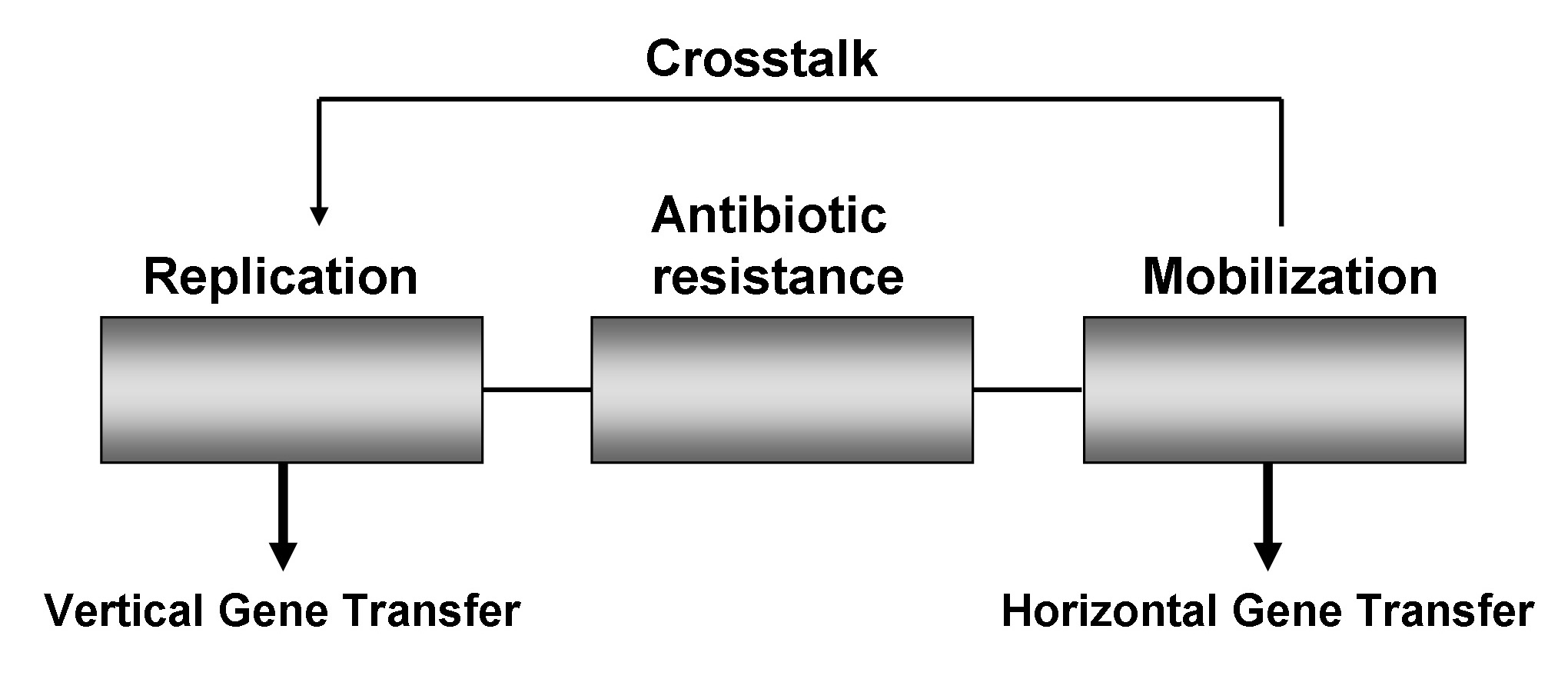
Researchers from the group of Bacterial Gene Expression and Gene Transfer at CIB, together with members of groups from the La Laguna University/Hospital Nª Sª de La Candelaria (Tenerife) and the Max Planck-Institut für molekulare Genetik (Berlin, Germany) have published a paper in which they report the discovery of unsuspected connections between particular functions encoded by bacterial plasmids.
Plasmids are included among the mobile genetic elements. They participate actively in the spread of antibiotic resistances as well as in the evolution of bacteria and eukaryotic organisms. Plasmids are DNA molecules constituted by independent genetic modules. In general, one of the modules participates in replication and its control, another module encodes resistance to antibiotics, and in certain cases there is a module that includes all (or a part) of the genes involved in horizontal gene transfer.
In the present work, published in the journal Nucleic Acids Research, the authors demonstrate that a protein
that participates in the mobilization of the promiscuous plasmid pMV158 is also able to act on the replication module. Such a protein modulates the plasmid copy number by partial inhibition of the synthesis of a small antisense RNA, which controls the replication module.
This type of crosstalk between genetic modules involved in replication and mobilization processes has not been reported before.
Reference: Crosstalk between vertical and horizontal gene transfer: plasmid replication control by a conjugative relaxase. F. Lorenzo-Díaz, C. Fernández-López, R. Lurz, A. Bravo, and M. Espinosa. Nucleic
Acids Res. doi: 10.1093/nar/gkx450

